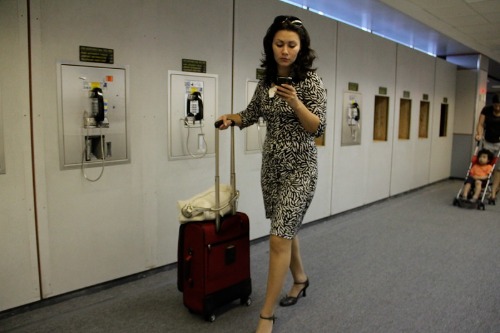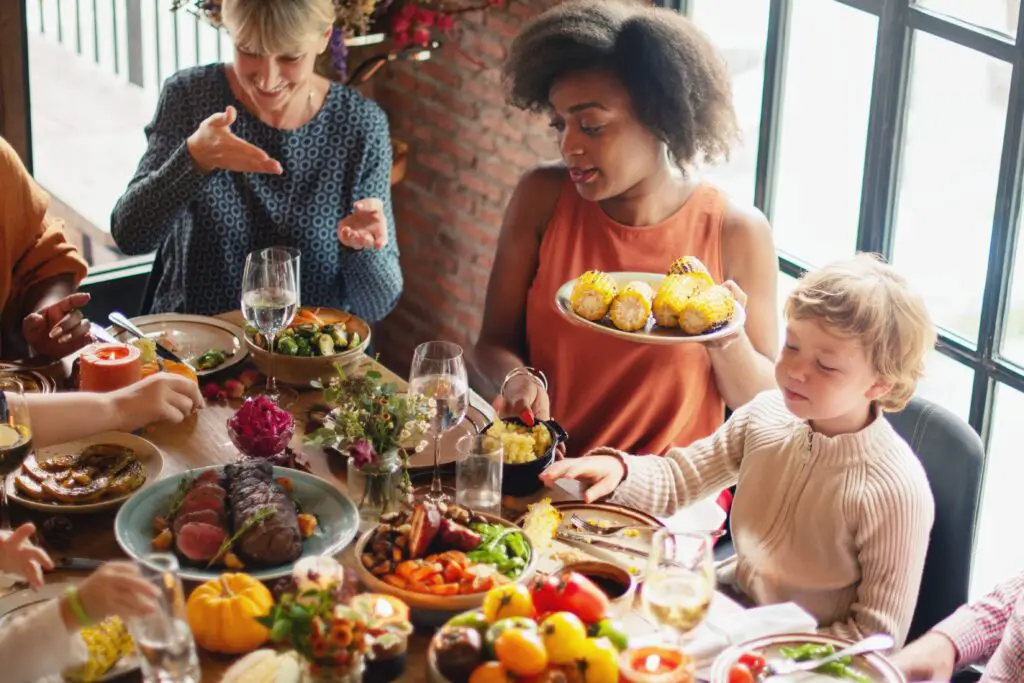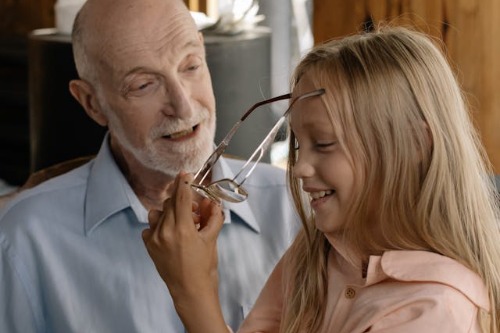1. Dress Up When You Fly

There was a time when boarding a plane meant putting on your Sunday best. Men wore suits and ties, women wore dresses and heels, and kids were scrubbed and polished. Flying was a luxury, not a routine—and people dressed the part. It was about respect for the experience and the people around you.
Today, air travel is more about comfort than class—think sweatpants, flip-flops, and neck pillows. The shift reflects how flying has become more accessible and less glamorous. But something was lost when style gave way to stretch fabric. Dressing up wasn’t just about looks—it was about treating the journey like an event.
2. Call Before You Visit

Dropping by unannounced used to be a social norm—if not exactly encouraged, it was at least tolerated. But even then, there was an unspoken rule: you called first. It was a simple courtesy that gave people time to tidy up, put on pants, or mentally prepare. It showed respect for someone’s space and schedule.
Today, with texting and constant connectivity, that rule has all but vanished. Some people still appreciate a heads-up, but others see surprise visits as borderline intrusive. The casual pop-in has become a relic of a more neighborly time. And honestly, most of us would rather get a text.
3. Stand When Someone Enters the Room

Especially in formal or family settings, standing up when someone entered—particularly an elder or a guest—was a sign of respect. It was subtle, automatic, and deeply ingrained in American manners. You didn’t have to say anything; the gesture spoke volumes. It acknowledged presence and conveyed deference.
Today, that gesture has mostly faded, especially outside of traditional or military circles. We’re more casual now, more focused on screens than social cues. But there’s something powerful about rising to meet someone—it sets a tone. And it reminds us that respect doesn’t have to be loud.
4. Write Thank-You Notes by Hand

After a birthday, wedding, or even a dinner party, it was once expected that you’d send a handwritten thank-you note. Not a text, not an email—a real note, with a stamp and everything. It didn’t have to be long, just sincere. It was a small act of gratitude that carried big meaning.
Today, thank-yous are often digital, if they happen at all. Life moves fast, and etiquette has loosened. But handwritten notes still stand out—they feel personal, thoughtful, and rare. And maybe that’s exactly why they deserve a comeback.
5. Don’t Talk Politics at the Dinner Table

This was once a golden rule of American civility: keep politics out of polite conversation, especially during meals. The idea was to preserve harmony, avoid conflict, and focus on shared experiences. It wasn’t about silence—it was about timing and tact. There was a time and place for debate, and it wasn’t over mashed potatoes.
Today, that boundary has blurred, especially in a hyper-polarized world. Some families lean into tough conversations, while others avoid them entirely. But the old rule had a point—sometimes, peace is more important than proving a point. And not every meal needs to be a battleground.
6. Respect Your Elders—Even If You Disagree

Respecting elders wasn’t just about obedience—it was about listening, learning, and acknowledging experience. You didn’t interrupt, you didn’t roll your eyes, and you definitely didn’t call them by their first name unless invited. It was a cultural baseline, not a political stance. And it taught humility.
Today, generational divides are sharper, and respect is often seen as something to be earned, not given. That’s not entirely wrong—but something’s been lost in the shift. Elders aren’t always right, but they’ve seen things we haven’t. And sometimes, just listening is its own kind of wisdom.
7. Keep Your Voice Down in Public

There was a time when speaking loudly in public—especially in restaurants, theaters, or on the phone—was considered rude. You kept your voice low out of courtesy to those around you. It wasn’t about being shy—it was about being aware. Public space was shared space.
Today, speakerphone calls, video chats, and oversharing in line at the grocery store are all too common. We’ve gotten used to broadcasting ourselves, often without realizing it. But the old rule still matters—volume is a form of respect. And not everyone needs to hear your hot take on last night’s date.
8. Wait Your Turn

Whether it was at the post office, the DMV, or the ice cream truck, waiting your turn was a basic rule of American life. You lined up, you stayed in line, and you didn’t cut—no matter how small the errand. It was about fairness, order, and shared patience. Everyone had somewhere to be, and no one was more important than anyone else.
Today, impatience is practically a lifestyle. From instant delivery to digital queues, we’re used to skipping the wait. But the principle still matters—especially in person. Waiting your turn isn’t just polite—it’s democratic.
This post 8 Forgotten Codes of Conduct That Once Governed American Life was first published on American Charm.


